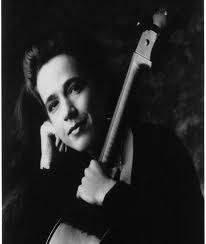|
Symphony
MYSTICAL PLANETS AND LIVELY GERSHWIN ORTIZ AT FINAL SRS CONCERT
by Peter Lert
Sunday, May 4, 2025
Symphony
VSO'S CONCERT MUSIC OF TIME, MUSIC OF PLACE
by Peter Lert
Sunday, April 27, 2025
Choral and Vocal
VOCAL ELEGANCE AND FIRE AT THE 222'S RECITAL APRIL 26
by Pamela Hicks Gailey
Saturday, April 26, 2025
CANTIAMO SONOMA SINGS AN INSPIRED GOOD FRIDAY MOZART REQUIEM CONCERT
by Pamela Hicks Gailey
Friday, April 18, 2025
DRAMATIC SHOSTAKOVICH SYMPHONY CLOSES PHILHARMONIC'S 25TH SEASON
by Terry McNeill
Sunday, April 13, 2025
LARGE COLLEGE OF MARIN AUDIENCE GREETS STOPHER ARTISTRY
by Terry McNeill
Saturday, April 5, 2025
Chamber
FRISSON DELIVERS SHIVERS OF DELIGHT
by Abby Wasserman
Sunday, March 30, 2025
OLD AND MOSTLY NEW IN SRS MARCH CONCERT IN WEILL
by Peter Lert
Saturday, March 22, 2025
Symphony
TWO FORMIDABLE SYMPHONIES AND PURPLE MOUNTAINS AT SRS CONCERT
by Peter Lert
Sunday, February 23, 2025
Chamber
THE PARKER CAPTURES DEMANDING ADES QUARTET AT RAC SEBASTOPOL CONCERT
by Peter Lert
Saturday, February 15, 2025
|
 |
 Cellist Jennifer Culp |
BEETHOVEN VARIATIONS HIGHLIGHT CULP-WOO RECITAL AT OAKMONT
by Terry McNeill
Thursday, September 13, 2012
Cellist Jennifer Culp brought a surprise to her Oakmont Concert Series performance on Sept. 13 when she opened with Barber’s early Cello Sonata, Op. 6. Beginning with a tonal yet difficult to assimilate work was a good choice, as mostly familiar pieces filled out the recital before about 125 patrons in Berger Auditorium.
Partnering with long-time collaborator pianist Betty Woo, Ms. Culp played the three-movement Barber sonata with solid technical command and admirable balance with the piano. Her sound is rich, never thin nor weak, and her control of pianissimo all afternoon was exemplary. The extended and often segmented Adagio movement is at the center of the sonata, and it had parts that were dreamy and rhapsodic. Barber’s piano part, played by the composer at the 1932 premiere, presented no ostensible difficulties for Ms. Woo, and her emphasis was in the lyricism that appears throughout the piece. Ms. Culp's intonation was secure throughout.
The sonic texture was lightened for Beethoven’s "Twelve Variations on a Theme from Handel’s Oratorio Judas Maccabaeus," WoO 45. The actual them is “See, The Conquering Hero Comes,” and each of the variations is very individual, including one for the piano alone and several requiring fleet right-hand figurations in the piano part. Ms. Culp’s vibrato was everywhere flexible, and she projected the wonderful theme in many sharp contrasts. Ms. Woo played the third variation’s rapid repeated notes brilliantly. The long penultimate variation (Adagio) was particularly well played, with the arpeggios in the piano part setting off the cello’s thematic statements.
This set of variations, from 1796, is a masterful example of Beethoven’s endless invention, and it received some of the best playing of the concert, along with substantial applause.
A novel transcription of Scriabin’s B-Flat Minor Etude from Op. 11 closed the first half. The etude was an odd program choice as it is short and achingly nostalgic. Piatigorsky’s arrangement has a beautiful ending tessitura, fading away. Ms. Culp played elegantly, with graceful bow attacks and faultless phrasing.
Rachmaninoff’s G Minor Sonata, Op.19, filled the second half. Composed in 1901, this work is acknowledged as one of the foremost cello sonatas of the 20th century. The opening Lento – allegro moderato found the two performers in a pensive mood, and they chose moderate tempos and restrained volume.
The following Scherzo was played more robustly, but it was clear that this was not to be a monumental reading. Ms. Woo played with facile technique, but she didn’t project the luscious themes with a big sonority. By the same token, she never covered the cello line. The audience benefited from the first-rate balances and the haunting themes from the cello in the famous Andante. Ms. Culp seldom leans into the phrases in the Russian style of Shafran, Piatigorsky and Rostropovich, but her burnished tone and patrician singing line were formidable. She eschews the now-popular animated gestures of cello virtuosi. Instead, she plays in a restrained, focused style even during the most intense drama.
The Rachmaninoff is a grateful work for performers and at nearly 30 minutes of opulent romanticism, deeply satisfying for listeners as well. Ms. Culp and Ms. Woo clearly loved playing the sonata.
No encore was offered.
|
